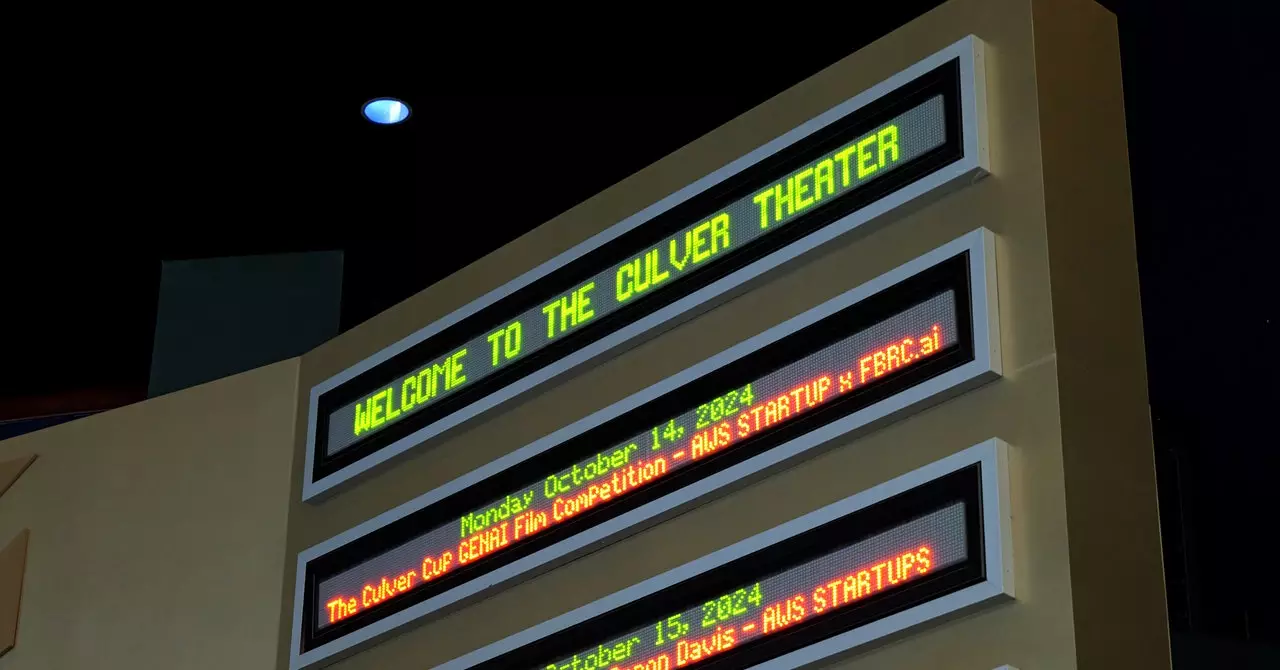The film industry stands at a remarkable crossroads, where the age-old art of storytelling grapples with the unrelenting march of technology. The integration of artificial intelligence (AI) into filmmaking offers both opportunities and challenges, posing critical questions about the future of creativity. Directors and industry insiders advocate for a balance between harnessing AI’s capabilities and safeguarding the essential human elements of narrative depth and emotional resonance.
In a landscape inundated with technological advancements, numerous creators emphasize the significance of mastering storytelling fundamentals. For filmmakers like Meta Puppet, emotional depth is paramount. His short film, “Mnemonade,” exemplifies this ethos; it invests in emotional storytelling through intricate character portrayals, even employing generative AI to modulate his voice for multiple characters. The film touches on poignant themes like memory loss, underscoring that while technology may evolve, the essence of engaging storytelling remains a constant.
The challenge lies in AI’s current limitations. As Meta Puppet asserts, until AI can master emotional dialogue that resonates with audiences, its adoption in mainstream filmmaking will be limited. For creators, the balance between human emotional intelligence and AI efficiency remains crucial. The authenticity that audiences seek often transcends technical perfection, hinting at a nuanced relationship between human creativity and AI assistance.
Amid the excitement surrounding AI’s potential, fear looms over significant legal and financial repercussions within Hollywood. Maddie Hong, a fellow director, underscores the industry’s hesitance due to potential copyright infringements that can arise when AI generates content. The possibility of legal battles stemming from AI’s interpretations raises concerns about the financial viability of productions that incorporate AI elements.
Moreover, the traditional studios’ emphasis on visual continuity poses additional hurdles. Films are distributed across various platforms, each with distinct image standards, and studios typically require stringent control over consistency. As AI tools become more pervasive, navigating these standards while leveraging innovative technologies poses a compelling challenge for filmmakers.
Despite the apprehensions regarding AI’s role, some industry voices advocate for the technology’s potential to enrich the production process. Amit Jain, co-founder of Luma, argues that generative AI could invigorate the stagnant high-budget production model in Hollywood. By offering flexibility in budgets and diversifying storytelling, AI may create opportunities to explore new narratives rather than continually revamping established franchises.
This sentiment reflects a growing recognition that risk-taking in creative endeavors could flourish when lower-budget projects are more feasible, potentially redistributing opportunities among aspiring creators. The prospect of increasing project volume hints at a collaborative environment where diverse narratives are ushered into the spotlight. Such shifts could redefine career trajectories for those in the industry, paving paths towards more fulfilling artistic endeavors.
The Uncertainty of Job Security
Yet, optimism about AI’s role is countered by concerns regarding job security. A recent survey of entertainment industry leaders revealed that an alarming 75% believed AI has contributed to job reductions or consolidations within their departments. While new roles may emerge, uncertainty lingers over whether they will be sufficient to offset losses, illuminating a significant risk for industry professionals.
Despite mixed sentiments surrounding AI, there exists an undeniable intrigue among artists. Many creation teams explore the promising benefits of AI-driven technology to streamline workloads—potentially enhancing overall creativity while replacing tedious tasks. However, ethical dilemmas persist, reminding creators of the impact of automation and technology on artistic integrity. As creators reminisce about the collaborative efforts of filmmaking, the equilibrium between human artists and AI presents both exciting possibilities and troubling anxieties.
As the world of filmmaking evolves rapidly, finding a balance between embracing AI’s potential and retaining the human dimension of storytelling will be crucial. The industry must grapple with profound questions regarding authenticity, creativity, and the ever-looming challenges posed by technological advancements. Ultimately, successful integration of AI in filmmaking may come down to recognizing that technology serves as a tool—not a replacement—for the rich tapestry of human imagination and emotional connectivity that lies at the heart of storytelling. The future of cinema remains uncertain, but one thing is clear: genuine artistry transcends technology and must be cherished and cultivated against the backdrop of rapid innovation.


Leave a Reply